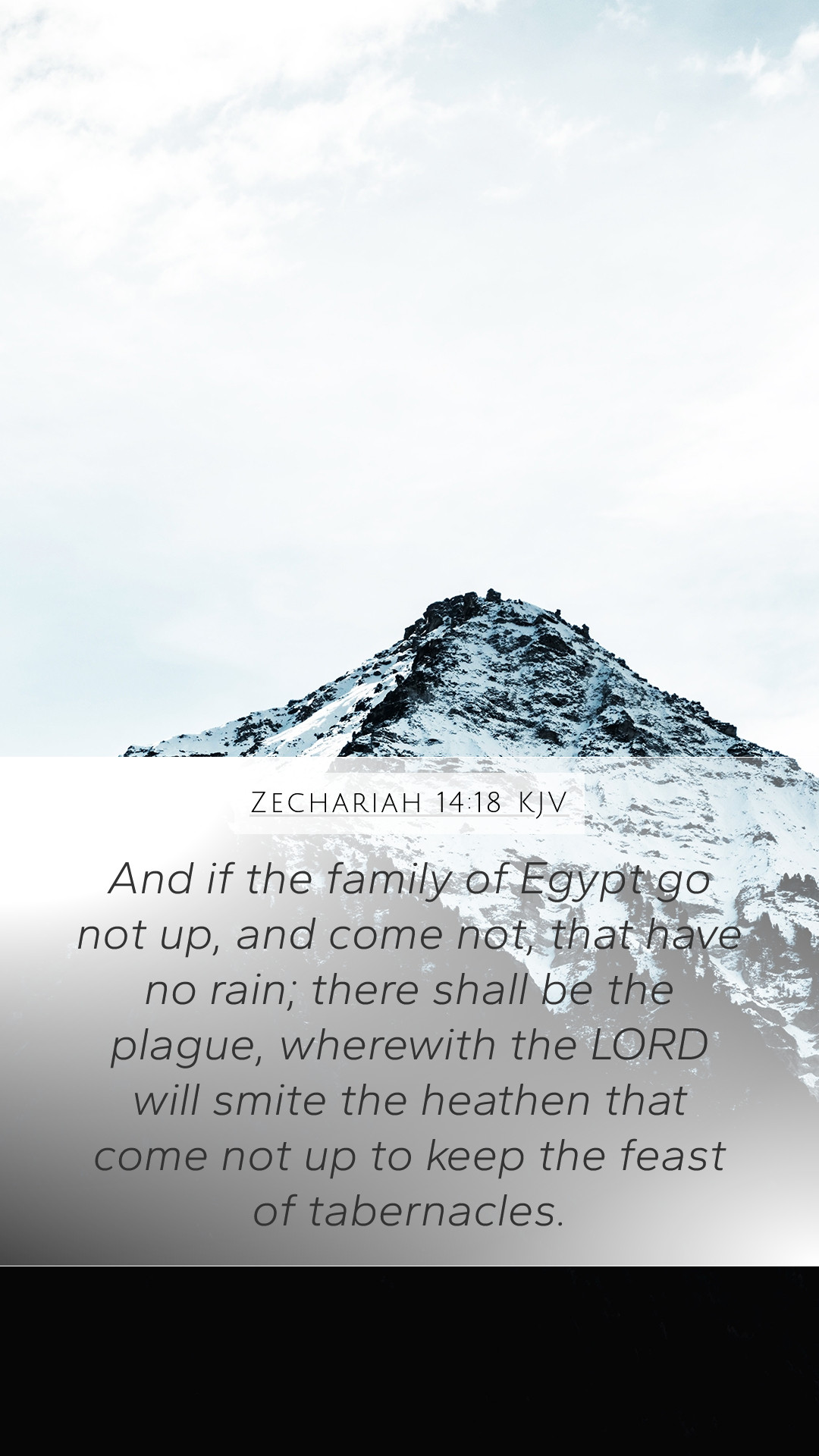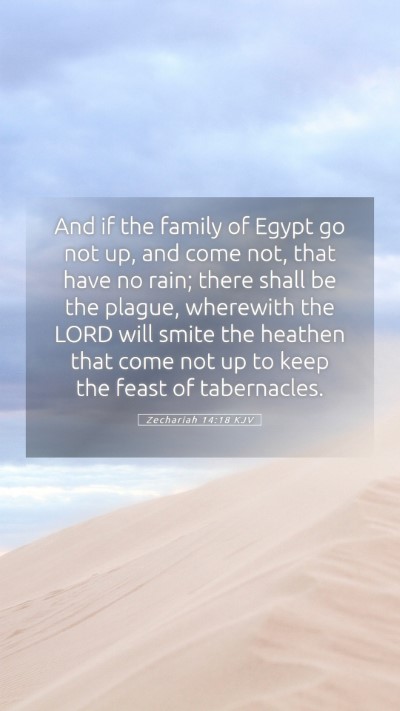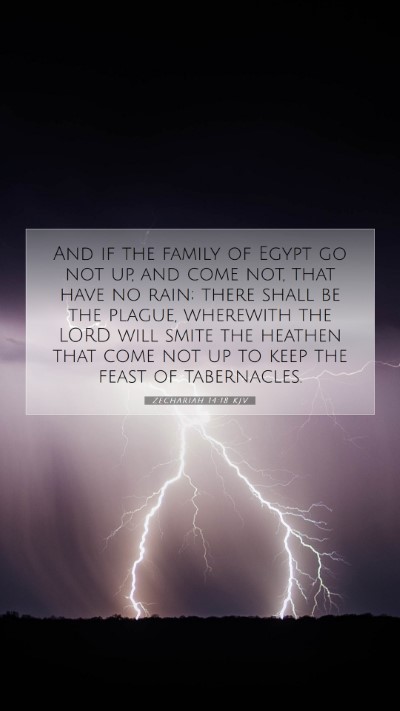Bible Verse Commentary on Zechariah 14:18
Verse: Zechariah 14:18 - “And if the family of Egypt go not up, and come not, that have no rain; there shall be the plague, wherewith the Lord will smite the heathen, that come not up to keep the feast of tabernacles.”
Summary of Bible Verse Meaning
This verse is part of the prophetic vision in the book of Zechariah which discusses a future time when God will reign over all the earth. The context revolves around the celebration of the Feast of Tabernacles, an important Jewish festival. Zechariah emphasizes that nations must acknowledge God during this time of worship, or they will suffer consequences, illustrating the importance of coming together in recognition of God’s sovereignty.
Bible Verse Interpretations
- Matthew Henry's Commentary:
Henry emphasizes the significance of God requiring all nations to come to Jerusalem to worship. He interprets this verse as a warning against the consequences of neglecting worship and highlights the symbolism of the Feast of Tabernacles as a reminder of God’s provision, calling for obedience from all nations. Moreover, his commentary reflects on God's mercy and judgment in relation to worship.
- Albert Barnes' Notes:
Barnes elaborates on the penalty for non-compliance with worship. He notes that the "plague" mentioned signifies divine displeasure and serves as a corrective measure. He draws attention to the universal approach of God, wherein every nation is expected to participate in honoring Him, thus reflecting His authority and the seriousness of acknowledging His rule.
- Adam Clarke's Commentary:
Clarke focuses on the historical implications, arguing that this prophetic declaration extends beyond mere ritual observance. He points out the Feast of Tabernacles as a festival representing God's deliverance and provision, and he addresses the broader prophetic theme of inclusion for all ethnic groups in God’s redemptive plan, underscoring the need for universal recognition of God’s glory.
Bible Verse Understanding and Application
The implications of Zechariah 14:18 extend to contemporary beliefs regarding worship and divine accountability. For modern readers, this verse serves as a challenge to recognize God’s authority in their lives and communities. By understanding its message, believers are encouraged to engage in collective worship and acknowledge God’s provision, thus drawing parallels to their own spiritual responsibilities.
Significance in Biblical Context
The call for nations to honor God during the Feast of Tabernacles highlights themes of unity, reverence, and the inclusivity of God's kingdom. This underscores the notion that neglecting communal worship can lead to consequences, as presented in this passage.
It reflects the character of God who desires worship that transcends cultural boundaries and emphasizes the importance of obedience to His commandments, linking back to the covenant relationship established throughout Scripture.
Cross References
- Exodus 23:16: Discussing the Feast of Harvest and gathering for celebration.
- Isaiah 66:23: Prophecy of all nations worshipping before the Lord.
- Psalm 42:1-2: Yearning for God as one seeks worship and communion.
Conclusion
In summary, Zechariah 14:18 urges believers to understand the communal aspects of worship and the necessity of acknowledging God’s supremacy. Through examining various commentaries, the teaching of this verse emerges as foundational for both historical and modern contexts within biblical scholarship. This fosters a deeper understanding of the significance of worship, obedience, and the inclusive nature of God’s kingdom, encouraging individuals and groups alike in their study and application of Scripture.
Further Exploration
If you seek to enhance your Bible study insights, consider engaging with online Bible study groups or resources that dive deeper into the meaning of Bible verses. Such explorations will refine your Bible verse understanding and enrich your spiritual journey.


